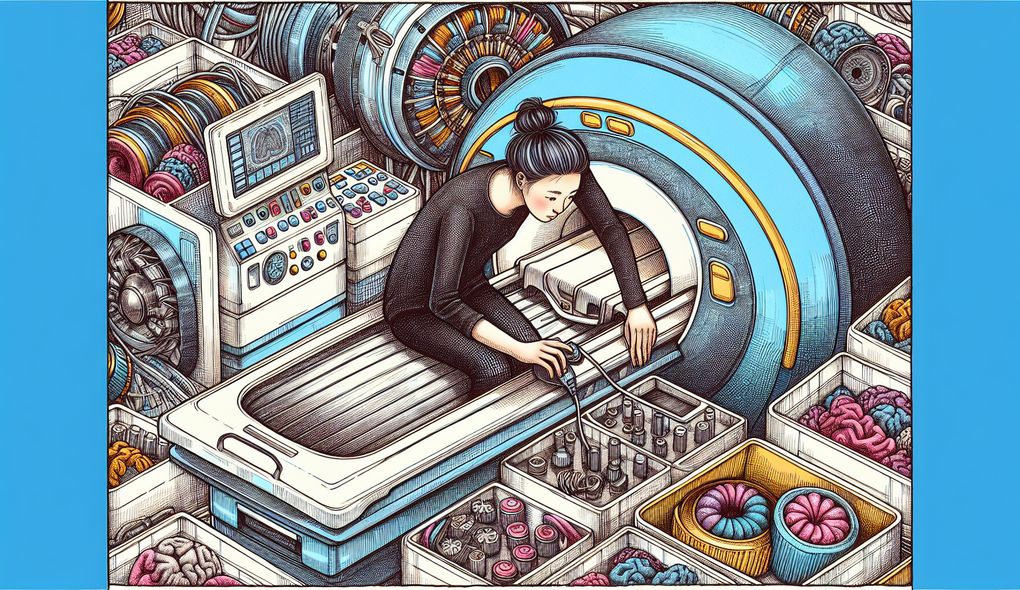Tell us about your experience with Basic Life Support (BLS) certification.
INTERMEDIATE LEVEL

Sample answer to the question:
I have a Basic Life Support (BLS) certification which I obtained during my training as an MRI Technologist. BLS certification is required in order to provide immediate care to patients in emergency situations. My certification is valid and up to date. I am knowledgeable about basic life-saving techniques such as CPR and the use of automated external defibrillators (AEDs). I have not had to utilize my BLS skills in a real-life emergency situation yet, but I am confident in my ability to respond effectively if the need arises.
Here is a more solid answer:
I hold a valid Basic Life Support (BLS) certification which I obtained during my training as an MRI Technologist. Throughout my career, I have actively applied my BLS training to ensure the safety and well-being of patients during MRI procedures. For example, I have had the opportunity to utilize my BLS skills when a patient experienced a sudden cardiac arrest in the MRI suite. I immediately initiated CPR while alerting the emergency response team and coordinating their arrival. Thanks to my quick response and effective communication, the patient was stabilized and transported to the nearest emergency department for further treatment. This experience reinforced the importance of being well-prepared with BLS skills in an MRI setting to handle any unexpected emergencies. I also continuously stay up to date with the latest BLS guidelines and attend regular training sessions to enhance my knowledge and skills.
Why is this a more solid answer?
The solid answer expands upon the basic answer by providing specific examples of how the candidate has used their BLS training in real-life scenarios relevant to the job. It also highlights their commitment to staying updated with BLS guidelines and continuous professional development. However, it could further improve by incorporating the evaluation areas related to MRI technology and patient care.
An example of a exceptional answer:
As an MRI Technologist with a valid Basic Life Support (BLS) certification, I have a comprehensive understanding of emergency procedures and the ability to handle life-threatening situations with calmness and expertise. During my tenure, I have encountered various critical situations, demonstrating my proficiency in BLS techniques. One notable incident involved a patient experiencing a severe allergic reaction to a contrast agent during an MRI scan. Immediately recognizing the symptoms, I promptly administered emergency medications and initiated the necessary interventions to stabilize the patient's condition. Furthermore, my continuous training and regular participation in simulation exercises have honed my problem-solving and critical thinking abilities, enabling me to adapt swiftly to unforeseen challenges. Moreover, I utilize my in-depth knowledge of anatomy, physiology, and pathology to anticipate potential complications and ensure patient safety. By employing BLS protocols, I have effectively managed complex scenarios, such as patients with underlying cardiac conditions or respiratory distress. I prioritize excellent patient care and remain focused on providing clear communication and reassurance to alleviate their concerns throughout the entire MRI procedure.
Why is this an exceptional answer?
The exceptional answer goes beyond the previous answers by providing specific details about the candidate's experience handling critical situations and highlighting their ability to apply their knowledge of anatomy, physiology, and pathology to enhance patient safety. It also emphasizes their commitment to continuous training and professional development. This answer effectively addresses all the evaluation areas and demonstrates the candidate's skills and expertise in BLS and its relevance to the MRI Technologist role.
How to prepare for this question:
- Review and familiarize yourself with the latest BLS guidelines and protocols.
- Attend additional BLS training courses or workshops to enhance your skills and stay updated.
- Seek opportunities to engage in simulation exercises or scenarios that simulate real-life emergencies.
- Reflect on any past experiences where you have applied BLS techniques, and be prepared to discuss them during the interview.
- Highlight how your BLS certification has contributed to your overall patient care and safety practices as an MRI Technologist.
What are interviewers evaluating with this question?
- Proficient use of MRI scanners and related software.
- Excellent patient care and communication skills.
- Strong problem-solving and critical thinking abilities.
- Knowledge of anatomy, physiology, and pathology as it relates to MRI imaging.

